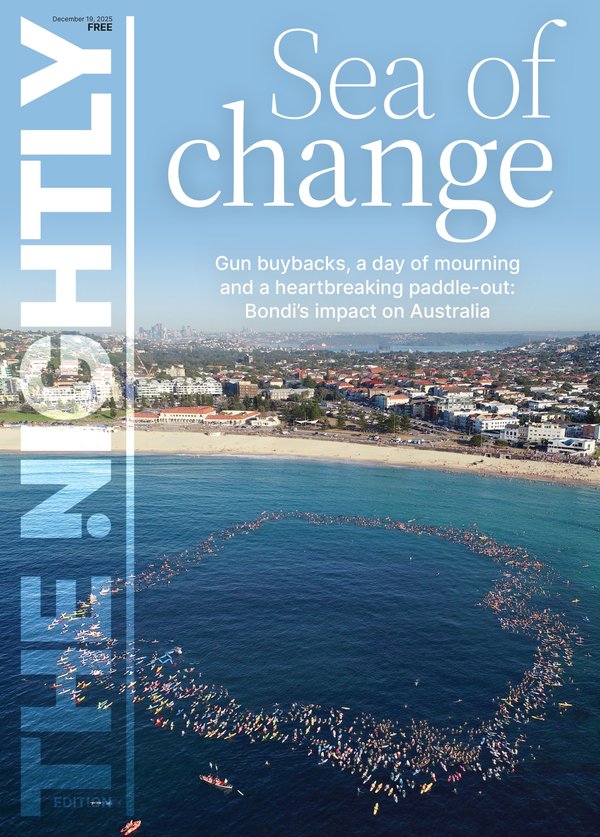Glittering gold miners lend a helping hand to nickel castaways to ease their own labour pains

There’s been a silver lining from the implosion of the local nickel mining industry for WA’s gold producers needing all hands on deck to capitalise on the precious metal’s record price.
BHP’s WA Nickel business is the latest — and largest — domino to fall in the State from a tsunami of Indonesian supply.
The BHP arm sustains 3000 workers and while on Thursday the Big Australian promised employment for the majority of its impacted workforce, there will inevitably be job losses to be heaped onto a towering pile of nickel causalities since the latter part of last year.
Sign up to The Nightly's newsletters.
Get the first look at the digital newspaper, curated daily stories and breaking headlines delivered to your inbox.
By continuing you agree to our Terms and Privacy Policy.Panoramic Resources’ collapse stung nearly 400 workers, Wyloo shuttering its Kambalda mines left about 265 in the lurch, First Quantum Minerals mothballing Ravensthorpe severed 530 jobs, and IGO’s decision to pause construction of the Cosmos mine skittled 400 roles.
But the job losses have been fortuitous for WA’s large stable of gold miners who have been grappling with a tight labour market while ramping up production to take advantage of a gold price that crossed all-time highs in April.
Among those to benefit are industry heavyweights Northern Star Resources, Regis Resources and Westgold Resources.
The boss of Westgold, Wayne Bramwell, says the company has had 80 workers start in the past two months.
Of that cohort, nickel castaways account for 25 — and 20 are new to the mining industry altogether.
“We’ve ended up getting a few people out of Panoramic and IGO and that has certainly helped, although it is bloody sad in terms of the macro picture,” he told The West Australian on Monday.
“But our focus over the past 12 months has really been trying to bring new people into the industry.
“Because that’s been the trouble in the whole West Australian mining space since COVID, everyone’s been cannibalising each other’s staff, driving the cost up.”
Westgold will have five underground mines if its major acquisition of Karora Resources gets the green light at the end of this month. Mr Bramwell said most of the nickel joiners have underground mining experience.
Underground is where the labour pains have been felt the most, according to Regis Resources chief executive Jim Beyer, who spoke to The West Australian days prior to BHP’s WA Nickel announcement on Thursday.
“The labour market has always been pretty tight for skilled people, certainly from the underground perspective,” he said.
“Last year and earlier this year, Liontown’s Kathleen Valley underground project got a bit scary there with the reported number of operators and jumbos they would absorb.
“From an underground operation point of view, particularly jumbo operators, a heading is a heading whether it’s hard rock nickel or hard rock gold.”
Mr Beyer said the “incredibly sad” mine closures by Panoramic and Wyloo allowed mining services contractor Perenti to plug gaps at Regis’ mines, but it wasn’t the quick fix to all of the gold miner’s cost headaches.
“There was a comment was made to me that probably two or four weeks or so after these different mines were closing that our mining contractor finally had a full house, bums on all seats.”
“There’s still plenty of inflationary pressure around, sure there might be a little bit more skilled labour, which means your productivities and your equipment productivities go up.
“But you’ve still got things like salary pressures and high diesel costs to contend with.”
Northern Star Resources executive manager of people and culture Marianne Dravnieks said that over the past six months, Australia’s largest locally-based gold miner has welcomed new team members from “several” nickel operations.
“Mining is a cyclical business, as we are currently seeing with commodities such as nickel,” she said.
“This presents opportunities for companies like Northern Star to offer employment to workers not already employed by us but who want to remain in the industry.
“Apart from retaining important skills in the mining sector, it also enables more cost-effective recruitment of new team members — particularly following a period of acute skills shortages.”
Originally published on The Nightly
